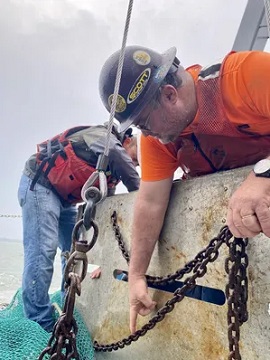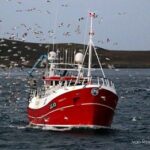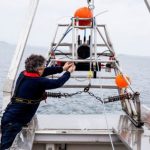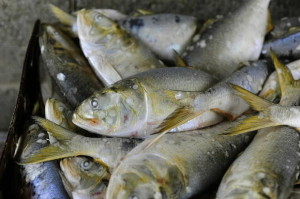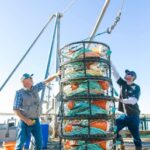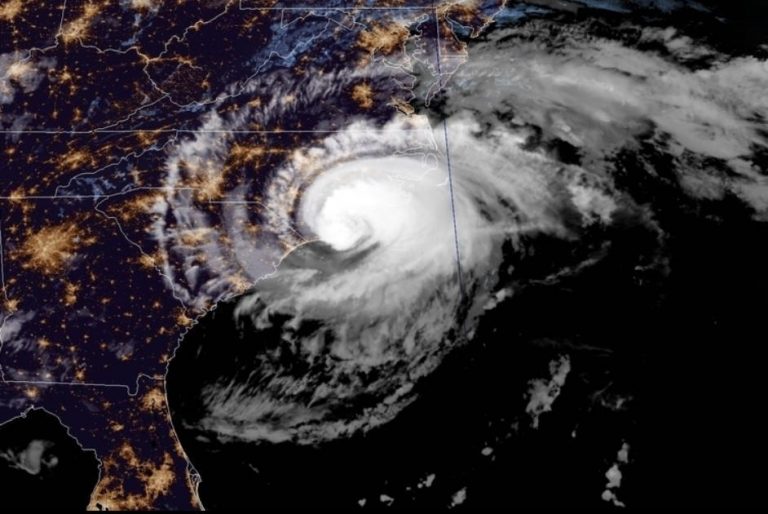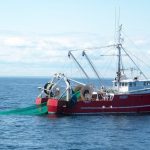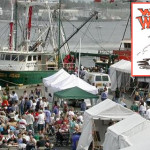Tag Archives: Georgia shrimpers
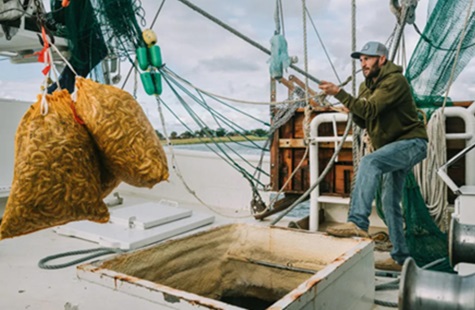
Coastal Georgia shrimpers fear loss of industry as foreign seafood crowds market
“Just when you think it can’t get any worse, it gets worse,” said Pat Mathews, the owner of the Lazaretto Packing Co. on Tybee Island, as he walked away from a truck idling in the loading zone. Early on a Monday morning in October in the height of shrimp season the driver had come to pick up a load of freshly caught shrimp from the James W. Salyers, a shrimp boat captained by David Attia. The driver delivered disappointing news, informing Pat that this would be the last load he would be able to pick up for the foreseeable future. The Mathews family has been in the seafood business for over a century. Where they once owned several seafood markets, their business now centers on the dock they own at Tybee, one of the few hubs of the industry that has been an iconic business on Georgia’s 100-mile coast. >>click to read<< 10:53
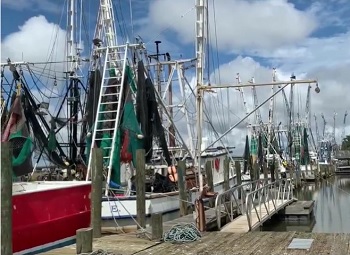
Georgia Shrimpers brace for Hurricane Dorian
Fishermen in the shrimp industry say the impending storm could blow away profits on the eve of the height of their season. In McIntosh County, shrimp boat captain Brooks Townsend says hurricanes have a negative impact on the shrimping industry. “We don’t want it to come here…mess us up. This is our best year coming up September and October, is about our best time of the year around for white shrimp, so if this comes in here, it’s gonna mess us up,” Townsend said. >Video, click to read< 14:10
Great news for Georgia Shrimpers! Warm, calm waters enhancing shrimp season
 Georgia’s commercial shrimpers are keeping their fingers crossed. The 2015 fall shrimping season has hit a good note, and is proving to be light-years ahead of where the fishing industry stood two years ago. “2013 was the worst year in history for shrimping off Georgia waters,” said Marc Frischer, a professor at the University of Georgia Skidaway Institute of Oceanography who studies area fisheries. “It was declared a federal disaster.” It was a devastating year for the industry, he said. Read the article here 07:59
Georgia’s commercial shrimpers are keeping their fingers crossed. The 2015 fall shrimping season has hit a good note, and is proving to be light-years ahead of where the fishing industry stood two years ago. “2013 was the worst year in history for shrimping off Georgia waters,” said Marc Frischer, a professor at the University of Georgia Skidaway Institute of Oceanography who studies area fisheries. “It was declared a federal disaster.” It was a devastating year for the industry, he said. Read the article here 07:59
Georgia Shrimpers report successful season
 The commercial shrimping season is shaping up to be a successful year when compared to what it was in 2013, even though the harvest by historical standards would only be considered average. Bruce Collins, manager at the City Market seafood store in Brunswick, remembers how bad last year’s season was and has revelled in watching the trawlers bring in loads of the tasty crustacean. “It’s been 10 times better than last year,” Collins said Wednesday. Read the rest here 13:12
The commercial shrimping season is shaping up to be a successful year when compared to what it was in 2013, even though the harvest by historical standards would only be considered average. Bruce Collins, manager at the City Market seafood store in Brunswick, remembers how bad last year’s season was and has revelled in watching the trawlers bring in loads of the tasty crustacean. “It’s been 10 times better than last year,” Collins said Wednesday. Read the rest here 13:12
Georgia shrimpers planning to petition for disaster status – Black gill disease – up to 90 percent of the shrimp have been infected.
 And they’re looking for answers to what’s devastating the catch from Charleston to Jacksonville, a shrimp disease called black gill. The condition, in which shrimp develop black spots on their gills, first showed up in Georgia shrimp in the 1990s. Since then it’s waxed and waned, but the last several years have been bad ones, shrimpers say. This year up to 90 percent of the shrimp in some trawls have been infected. more@independentmail 09:22
And they’re looking for answers to what’s devastating the catch from Charleston to Jacksonville, a shrimp disease called black gill. The condition, in which shrimp develop black spots on their gills, first showed up in Georgia shrimp in the 1990s. Since then it’s waxed and waned, but the last several years have been bad ones, shrimpers say. This year up to 90 percent of the shrimp in some trawls have been infected. more@independentmail 09:22






